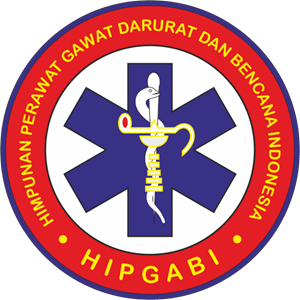EDUKASI DALAM MENINGKATKAN KEPATUHAN INTAKE CAIRAN PASIEN PENYAKIT GINJAL KRONIK (PGK) ON HEMODIALISIS
Downloads
Introduction: One of the causes of death in patients with chronic kidney disease on hemodialysis was due to the problem of uncontrolled fluid intake. The prevalence at Dr. Soetomo reported hospital as much as 80% increase weight more than 6%. Nursing education in fluid restriction was expected to improve adherence to fluid intake, and therefore contributes to the achievement of the ideal IDGW was less than 2%.
Method: Design in this study was pre-experiment. The population in the study were all patients with chronic kidney disease undergoing hemodialysis. The samples obtained were 28 respondents who met to the inclusion and exclusion criteria. Purposive sampling technique was used in this study. The independent variabel was education. The dependent 2 variabel was Inter Dialitic Weight Gain, Qb and systolic blood pressure. Body weight was observered before and after hemodialysis. Blood pressure was observered during hemodialysis. Data were analyzed using Wilcoxon Signed Rank test with significant level of p=0.005.
Result: The results showed that IDWG (p=0.157); Qb (p=0.007) and systolic blood pressure (p=0.021). IDWG patients did not undergo significant changes before and after education. Qb and systolic blood pressure of patients experiencing significant changes before and after education. Nursing educations provides significant effect on the patient's fluid intake compliance with indicator Qb and systolic blood pressure.
Conclusions: Nursing educations would provide significant effect on compliance if supported by many factors such as family support advocates, social support and motivation of the patients.The provision of education should be carried out continuously and sustainably to obtain optimal results in patients undergoing regular hemodialysis , especially in terms of compliance with hemodialysis therapy and fluid therapy regimen , in order to achieve adequate dialysis. In a subsequent study can be developed not only limited to the provision of education to the patient but also involve the patient's family .
Cahyaningsih, N.D. 2009. Hemodialisa (cuci darah), Jogjakarta: Mitra Cendikia Press
Dochterman & Bulechek 2004. "Rehabilitation Nursing, Prevention,
Intervention, and Outcome, Health Science Raghes Departement in
Philadelphia7
Era 2008. Quality of care in and stage renal disease, Journal Nephrol Deal
Transplant, 2008 April 23
KDOQI 2006.‘Clinical practice guidelines on hypertension and anti hypertensive agent in chronic kidney disease', dalam Guideline 2 in: evaluation of patientwith CKD or Hypertension,hal. 1-18.
Kim, et al. 2004. Moderate renal impairment and risk of dementia among older adults: the Cardiovascular Health Cognition Study. Nefrology Nursing
Journal.
Kresnawan, T. 2001. Pengatur makanan (diet) pada pasien gagal ginjal
kronik yang menjalani hemodialisa dengan terapi konservatif dan terapi
pengganti, Instalasi Gizi RSCM, Jakarta
Kubler-Ross, E. 1998. On death and dying (kematian sebagai bagian
kehidupan), GramediaPustaka Utama, Jakarta.
Lolyta, R., Ismonah & Solechan, A. 2011. Analisis Faktor yang Mempengaruhi Tekanan Darah Hemodialisis pada Klien Gagal Ginjal Kronik (Studi Kasus di RS Telogorejo Semarang)
Mistiaen P 2001,‘Thristinterdyalitic weight gain and thirst intervention in
hemodialysis patient', Neprology Nursing Journal, Vol. 2, Hal.1-5
Nissenson, A.R. & Fine, R.N. 2008.
Handbook of dialysis therapy, edisi 4, Saunders Elsevier, Philadelphia.
Notoatmodjo, S. 1985. Pengantar Ilmu Perilaku Kesehatan, Badan Penerbit
Fakultas Kesehatan Masyarakat Universitas Indonesia, Jakarta.
Nursalam2013, Metodologi Penelitian Ilmu Keperawatan: Pendekatan Praktis, edisi 3, Salemba Medika, Jakarta.
Perhimpunan Nefrologi Indonesia (PERNEFRI) 2003. Konsensus Dialisis Jakarta
Sari, Y. 2011. ‘Hubungan tingkat stress dan strategi koping pada pasien yang menjalani terapi hemodialisa', England journal, diakses 19 April
<http://academia.edu/3401185/hubungan_tingkat_stress_pasien_hemodialis1835089000653>
Smeltzer, S.C. & Bare, B.G. 1996. Textbook Of Medical Surgical Nursing, edisi 8, Lipincot, Philadelphia
Welas, R. 2009. "Hubungan Antara Penambahan Berat Badan di Antara
Dua Waktu Hemodialisis (IDWG) terhadap Kualitas Hidup Pasien PGK
yang Menjalani Terapi HDDi Unit HD IP2K RSUP FATMAWATI JAKARTA”, Jurnal UI
Welch, P., Johnson & Kraus 2006. ‘Interdialytic weight gain the year of
hemodialisis', Nefrologi Nursing Journal.
1. The journal allows the author to hold the copyright of the article without restrictions.
2. The journal allows the author(s) to retain publishing rights without restrictions.
3. The legal formal aspect of journal publication accessibility refers to Creative Commons Attribution (CC BY).

















